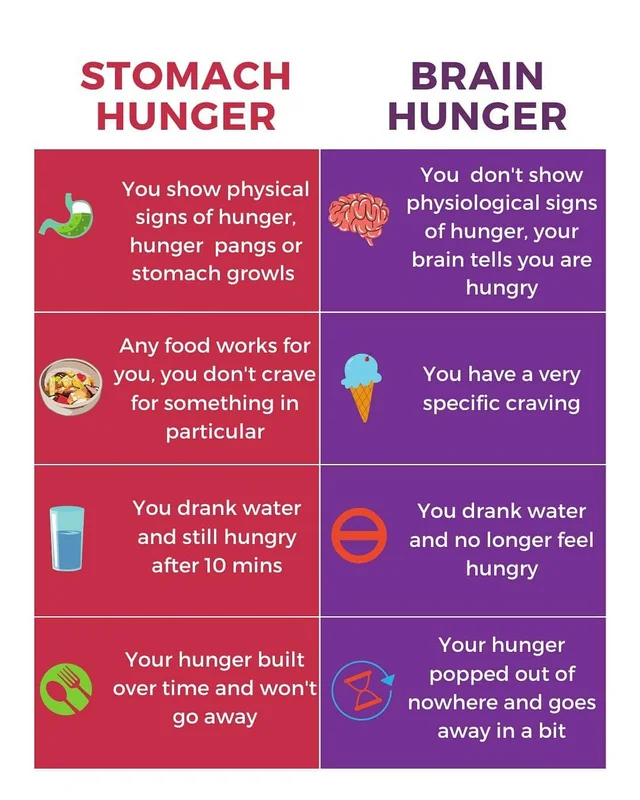
If you’re anything like me, you’ve probably wondered why you keep eating when you’re not actually hungry. You might think that it’s just a bad habit—but there’s more to the story than that. It turns out that hunger and cravings are driven by two different things: stomach hunger and brain hunger. Stomach hunger is real and physical, but brain hunger can be trickier to identify because it’s often tied to emotions or habits instead of physical needs (like being hungry). So how do we learn to tell the difference between these two types of appetite? Here are some tips from experts who have studied this topic:
Think about what you’re craving The next time you’re craving something, ask yourself: “Am I really hungry? Or is my brain just being lazy?” Food cravings are often driven by emotional needs. Some examples include stress, boredom, loneliness and depression. If you find yourself thinking of what to eat when you’re not really hungry, the best thing to do is try one of these strategies: Eat more protein at meals (e.g., meat or eggs). Protein helps balance your blood sugar levels and stabilizes your moods in between eating times; it also quells hunger pangs for longer periods of time than carbs do. Drink a glass of water first before reaching for anything else (like chocolate ice cream). This will help rehydrate you if indeed you’re dehydrated—and it’ll probably stop those chocolate cravings in their tracks!
Learn to tell the difference between when you’re truly hungry vs when you’re eating for other reasons. To learn to tell the difference between when you’re truly hungry vs when you’re eating for other reasons, it’s helpful to first understand what causes hunger. Stomach hunger is often characterized by a growling or rumbling sensation in the stomach that lasts about 15 minutes before passing. If you feel this type of physical hunger, make sure to eat something light like a piece of fruit or half a sandwich so as not to make yourself sick. Brain hunger (also known as emotional eating) can be harder to spot because it’s based on feelings and emotions rather than physical cues. Signs of brain hunger include eating while doing something else such as watching TV or working on your computer, eating when feeling stressed, sad or anxious and eating when bored.
If you’re not sure if you’re hungry or just bored, try to think of what it is that you really want. If it’s a snack, then go ahead and eat something! But if it’s something else (like a break from work or some time spent with friends), try to find another way to fill that need.
